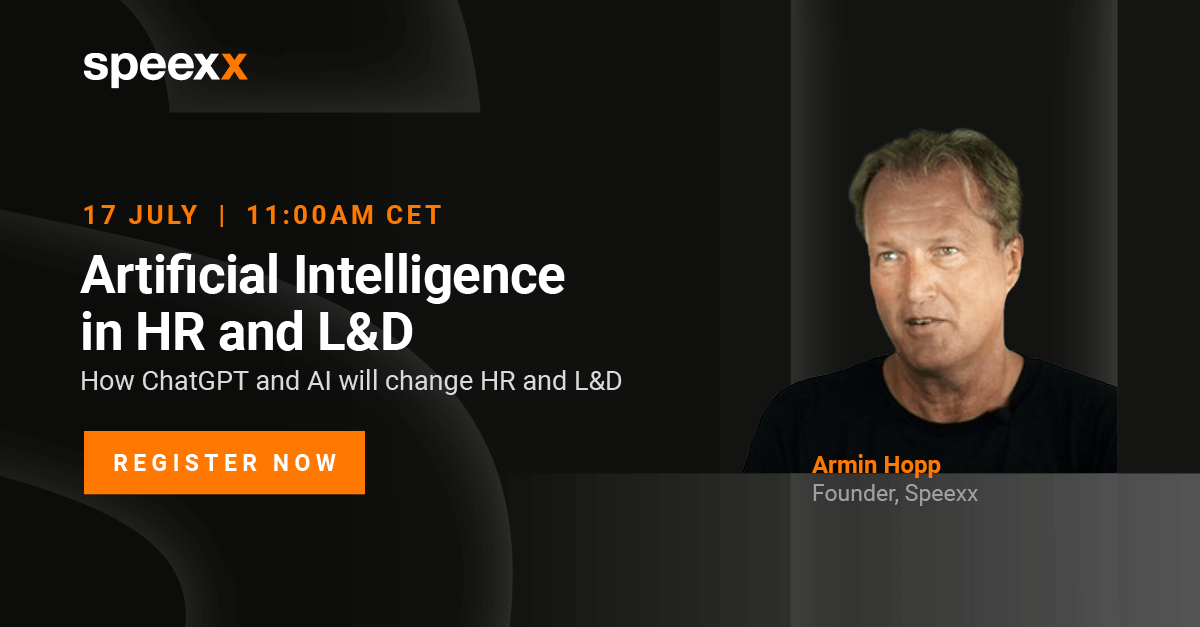In today’s rapidly evolving digital era, there are few industries that are not being fundamentally disrupted by the transformative power of artificial intelligence (AI). Human Resources, while considered to be very much a face-to-face function, is not immune to the huge potential of AI-powered solutions either. AI enables HR professionals to streamline processes, enhance decision-making, and foster a more efficient, engaging work environment.
In this article we will explore some of the exciting possibilities that AI opens up for HR, revolutionizing the way organizations manage their most valuable asset — their people
AI Revolutionizing Talent Acquisition and Recruitment
HR managers are adapting to the fact that candidates increasingly use AI tools like ChatGPT to write resumes and cover letters and it is not even seen as cheating by many in the industry. As such, HR is adapting to this “new normal” by automating many of its core processes such as talent acquisition and recruitment. Machine learning algorithms and natural language processing make AI in HR feel anything but artificial: candidate screening, resume analysis, even interviews, can now be conducted using AI, making the whole process of finding the right candidate for a role more efficient and data driven.
Optimizing Employee Onboarding and Training
Onboarding is a critical phase in the employee lifecycle, shaping an individual’s experience within an organization. With AI in HR, onboarding processes can be optimized to deliver personalized experiences: AI-powered chatbots can provide instant support, answer employee queries, and offer relevant resources; AI can also identify knowledge gaps and recommend tailored training programs to enhance employee development, ultimately boosting productivity and engagement.

Tips, tricks and insights on how to use AI tools in the HR environment.
Enhancing Performance Management, Employee Engagement, and Wellbeing
AI offers transformative capabilities in terms of performance management and evaluation, giving HR managers deeper insights into how an employee actually works. AI-powered analytics can collect and interpret vast amounts of data and performance metrics enabling HR managers to make more accurate assessments, identify areas of improvement, and provide targeted feedback and coaching to employees.
AI in HR can also be used to enrich support: chatbots and virtual assistants can assist employees in various tasks, such as accessing HR policies, requesting time off, or addressing concerns. On a deeper level, AI can also monitor employee wellbeing through sentiment analysis, allowing HR managers to detect early signs of dissatisfaction and intervene appropriately. By leveraging AI for employee engagement, HR managers can create a positive, more personalized work environment that fosters loyalty and wellbeing, while improving productivity.
Streamlining HR Operations and Administrative Tasks
AI-powered solutions can automate repetitive and time-consuming administrative tasks: Chatbots can handle routine employee inquiries, providing quick and accurate responses, thus freeing up HR managers to focus on strategic initiatives. AI-based systems can also automate payroll processing, ensuring accuracy and efficiency while reducing errors. By streamlining these HR operations, organizations can optimize resource allocation and improve overall operational effectiveness.
AI in Learning and Development (L&D)
Artificial intelligence is also revolutionizing Learning and development, in particular it has redefined performance management and feedback systems to offer real-time, impartial feedback that is constructive and fosters employee growth. AI-driven coaching and leadership development programs help identify potential leaders and equip them with necessary skills, while individual coaching initiatives backed by AI nurture mental health and the general wellbeing of employees.
Mitigating Bias while Promoting Diversity and Inclusion
Unconscious bias has long been a challenge in HR processes, but AI has the potential to mitigate this while promoting diversity and inclusion. AI-powered tools can anonymize resumes and interviews, ensuring fair and impartial evaluations. By analyzing data and identifying patterns, AI can provide insights into potential biases and thus help HR managers avoid them. The latent skew that occurs as a result of personal preferences or prejudice can be removed with new technology; by leveraging the power of AI, organizations are able to embrace social progress, building more diverse and inclusive workforces.
Artificial Intelligence in HR: the Summing Up
The integration of AI in HR management opens up a world of possibilities for HR professionals. By embracing artificial intelligence, HR managers can transform talent acquisition, optimize employee onboarding and training, enhance performance management, boost employee engagement and well-being, streamline operations, while promoting diversity and inclusion. However, it is important to remember that while AI can augment HR processes, the human touch remains crucial: HR managers should strike a careful balance between leveraging AI capabilities and nurturing the human connection within their organizations. By harnessing the power of AI in HR, organizations can unlock greater efficiency, productivity, and employee satisfaction, all of which help to drive greater business success in the digital age.


